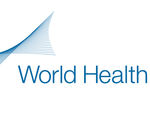 The World Health Summit which brings together over 1,000 high-ranking participants from all over the world began in Berlin October 2oth with a speech by the German Foreign Minister, Dr. Guido Westerwelle at the Federal Foreign Office.
The World Health Summit which brings together over 1,000 high-ranking participants from all over the world began in Berlin October 2oth with a speech by the German Foreign Minister, Dr. Guido Westerwelle at the Federal Foreign Office.
Programmes on the business agenda at the Summit include Reaseach and Innovation, Education and Leadership, Evidence to Policy and Global Health for Development.
In his welcoming address, Dr Westerwelle stressed that health was an essential human right and a “pre-condition for human development, individually and collectively.”
He said, “without better health we will not achieve development anywhere,” adding that health was a global issue and that most of the world’s big health challenges were not confined to a national level.
Dr Westerwelle observed that hosting this year’s World Health Summit at the Federal Foreign Office does not only reflect the international dimension of health issues but also the role of modern preventive diplomacy in addressing global topics such as climate change, energy security, water and health.
He announced that Germany was committed to a strong and constructive role in the field of Global Health.
“We live in a world of more than seven billion people. There is no doubt that health must remain a priority on the agenda of the international community in the future. In former times national governments could cooperate. Today, in times of globalization, national governments must cooperate. This is not only the case for health. But it is especially true for health because the health care sector is one of the fastest growing sectors worldwide. And it will further gain importance due to demographic changes in the world,” he said.
Dr Westerwelle stressed that national governments could not resolve all challes and changes on their own, adding “we need the cooperation of science, economic and civil society with politics in order to find solutions.”
Globalization and global networkimng, says the German Foreign Minister, was not only a challenge but also a great chance – one could benefit from the experience, research and development of others.
The opening press conference of the World Health Summit opened earlier with a wake-up call by Aaron Ciechanover, the 2004 Nobel Prize Laureate in Chemistry, who observed that “It is immoral if somebody, anywhere in the world, dies of a disease we already have a cure for.” The question remains, how medical progress can reach all people worldwide.
One solution was offered immediately by José Ramos-Horta, 1996 Noble Peace Prize Laureate: “Education. Education. Education.” As about 40% of preventable deaths are due to individual behavior, as WHS President John Wong (National University of Singapore) explained, education can be a key to prevent a significant number of deaths.
